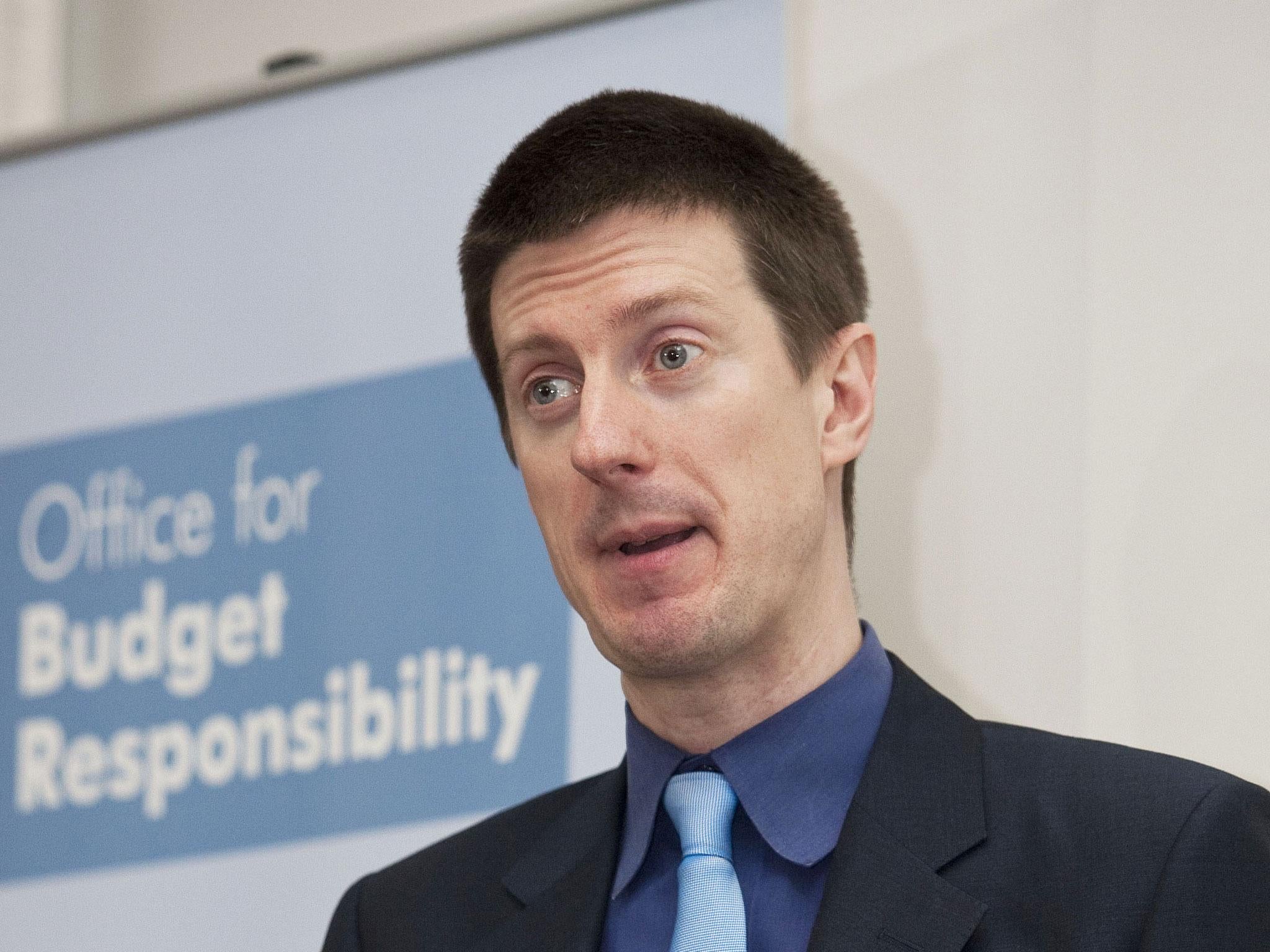No-deal Brexit will tip UK into recession, government's official spending watchdog says
The Office for Budget Responsibility analysed a particular type of a no-deal Brexit scenario – the less disruptive of the two presented by the IMF in April

Britain could fall into recession if it crashed out of the EU without a deal, the government's official spending watchdog has said.
The Office for Budget Responsibility has carried out a "stress test" to quantify the impact on public finances of a particular type of a no-deal Brexit – the less disruptive of the two presented by the IMF in its World Economic Outlook, published in April.
Even in that scenario "heightened uncertainty and declining confidence deter investment, while higher trade barriers with the EU weigh on exports", the OBR said in its fiscal risks report. "Together, these push the economy into recession, with asset prices and the pound falling sharply."
The stress test is "by no means" a worst-case scenario under a no-deal Brexit, it added.
Speaking at a meeting of G7 finance ministers in Chantilly, France, Chancellor Philip Hammond said: “The report that the OBR have published this morning shows that even in the most benign version of a no-deal exit there would be a very significant hit to the UK economy, a very significant reduction in tax revenues and a big increase in our national debt – a recession caused by a no-deal Brexit.
Tariffs in the event of a no-deal Brexit
Show all 15"But that most benign version is not the version that is being talked about by prominent Brexiteers. They are talking about a much harder version which would cause much more disruption to our economy. The OBR is clear that in that less benign version of no-deal, the hit would be much greater, the impact would be much harder, the recession would be bigger. So I greatly fear the impact on our economy and our public finances of the kind of no-deal Brexit that is realistically being discussed now.”
Detailing the less drastic IMF scenario it examined, the OBR said the possible recession would start in the fourth quarter of 2019 and last a year. GDP adjusted for inflation would decline by 2.1 per cent by late 2020, around the same as in the early-1990s economic slump and about a third of the fall during the financial crisis.
The effects of the recession would be long-lasting, with real GDP 4 per cent lower by the middle of 2021 compared with the OBR's latest economic forecasts released in mid-March, before the last Brexit deadline. Despite a recovery, it would still be 1.6 per cent smaller by early 2024.
Government debt would rise relative to GDP over the next three years and the budget deficit would widen by around £30bn from 2020-21 onwards, the report said.
The economy is heading towards the 31 October Brexit deadline already weakened.
"The latest data and surveys suggest the economy flatlined at best in the second quarter," the OBR said.
"Some of this is likely to be a ‘pay-back’ after Brexit-related stock building in the first quarter. But surveys were particularly weak in June, suggesting that the pace of growth is likely to remain weak. This raises the risk that the economy may be entering a full-blown recession."
Fears of a no-deal Brexit have risen in the last few days after the two contenders to become Britain's next prime minister promised to scrap the Irish backstop, deemed indispensable by the EU. Their comments on Tuesday sent the pound to its lowest level against the dollar in more than two years.
Additional reporting by Andrew Woodcock
Subscribe to Independent Premium to bookmark this article
Want to bookmark your favourite articles and stories to read or reference later? Start your Independent Premium subscription today.

Join our commenting forum
Join thought-provoking conversations, follow other Independent readers and see their replies